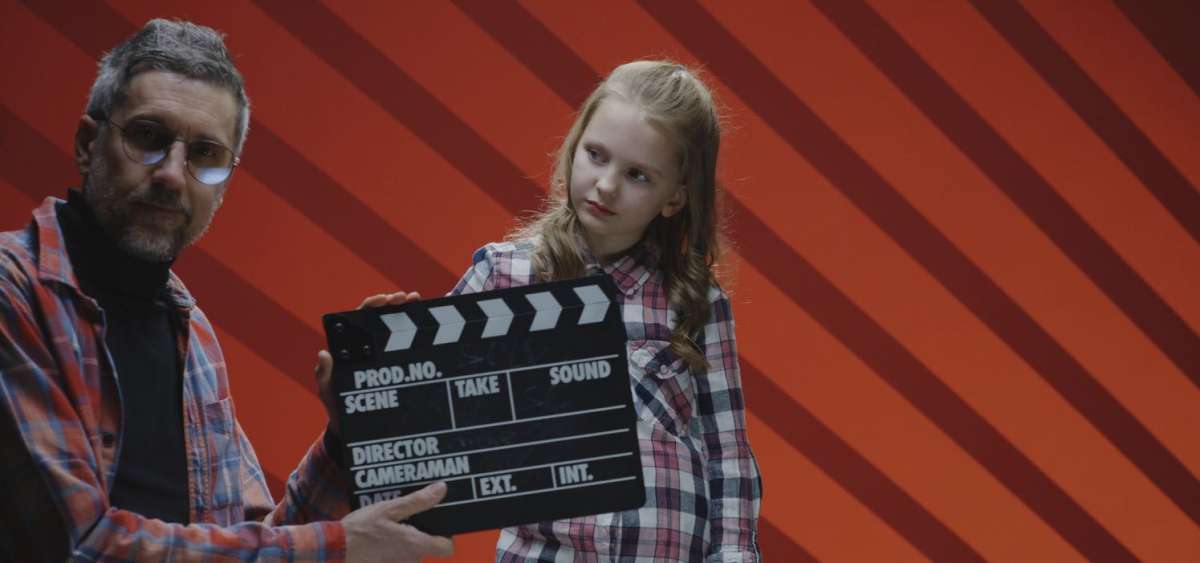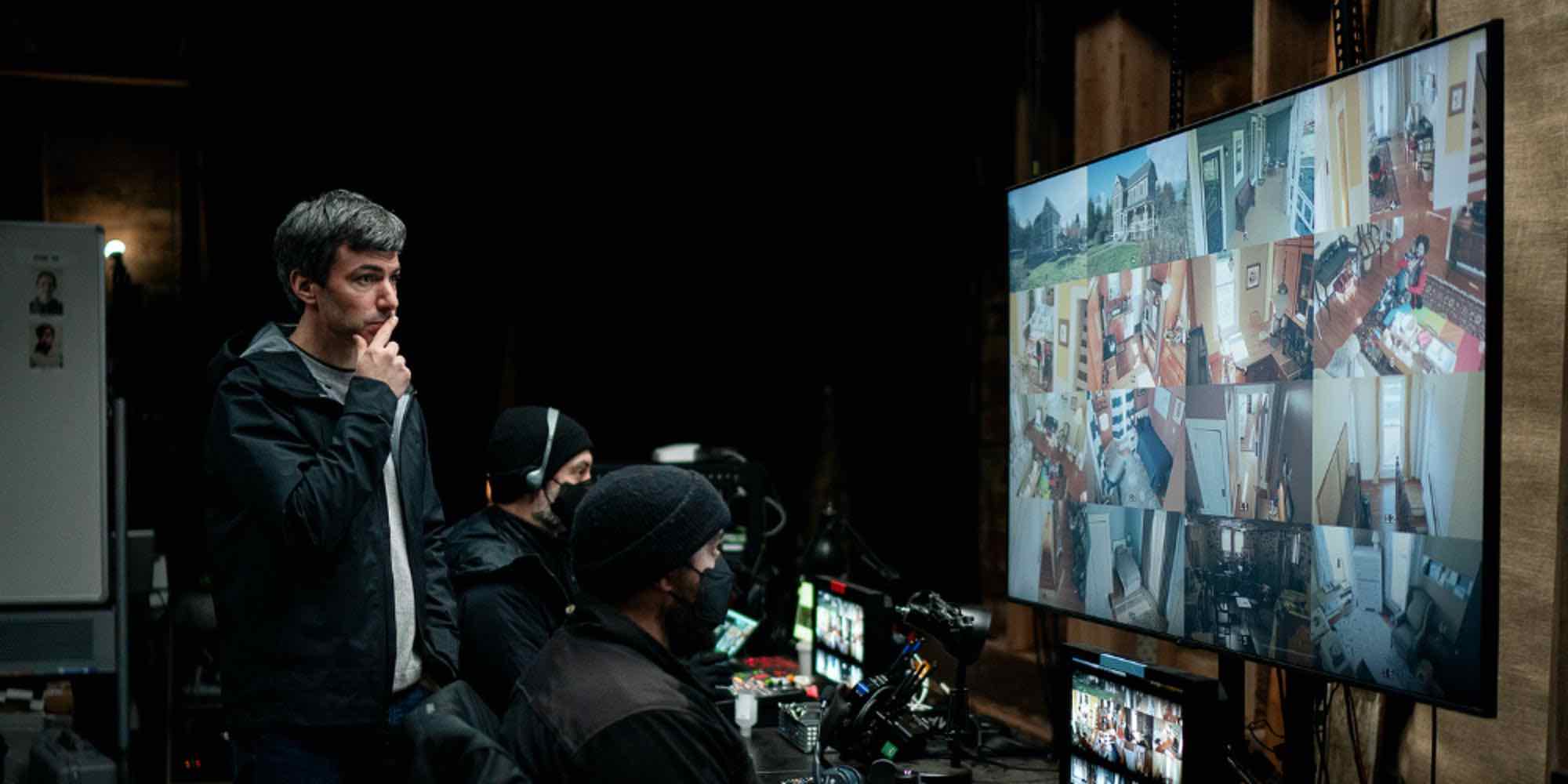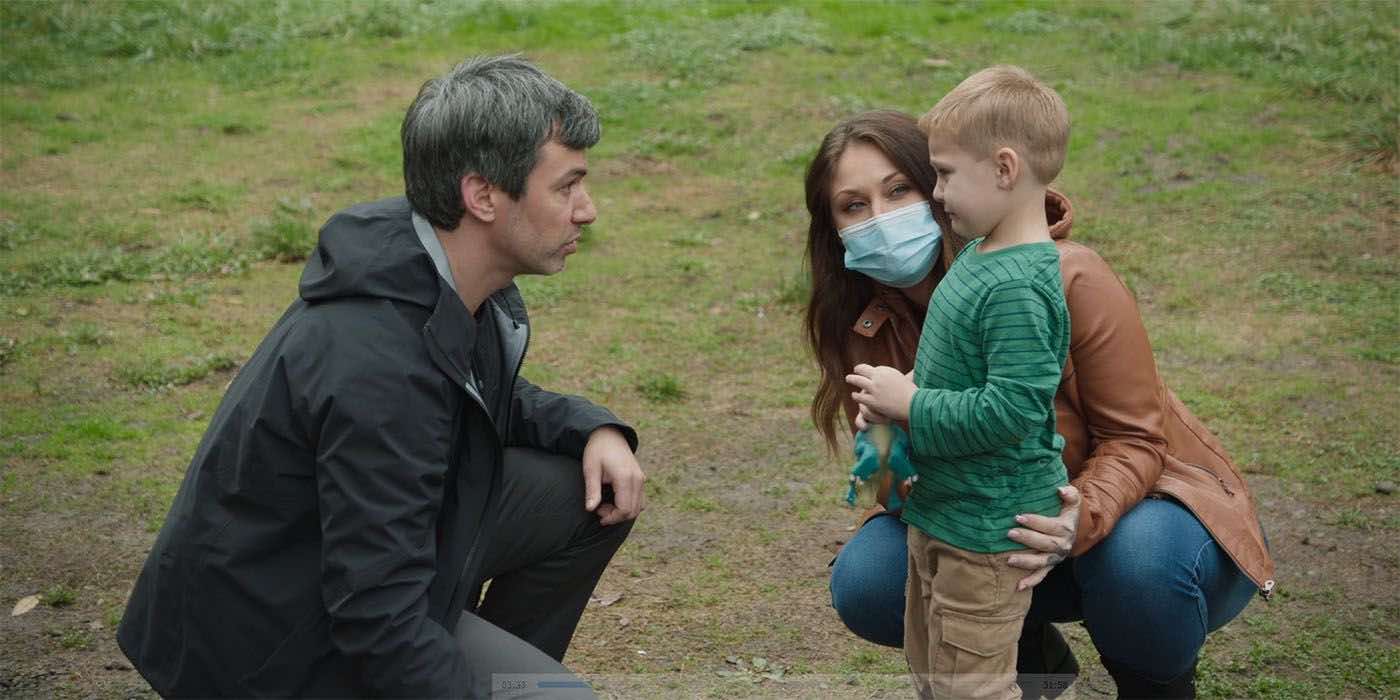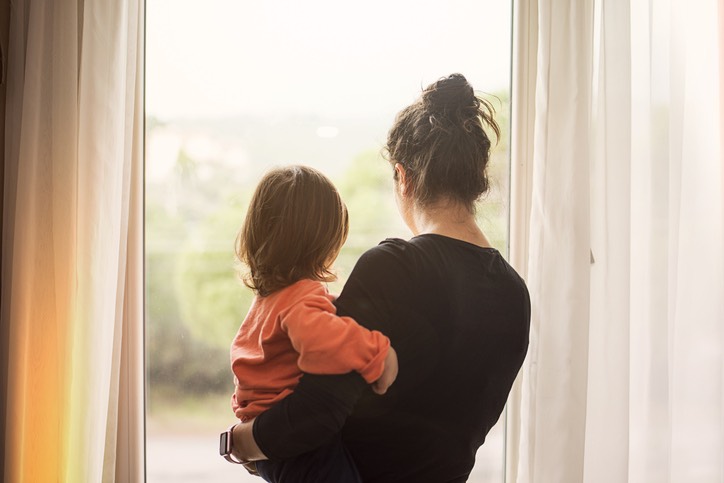How HBO's The Rehearsal Shows Us (and Nathan Fielder) The Pains of Parenting

In an experiment to test drive parenting, fiction and reality collide with uncomfortably funny and sobering results. Spoiler alert: This piece contains plot details.
The first season of the HBO docuseries, Nathan Fielder’s The Rehearsal, ended in August, but fans of Fielder's offbeat humor will be happy to hear that HBO is renewing it for a second season. However, Fielder’s combination of staging scenarios with real people and actors and essentially playing games with them isn’t everyone’s cup of tea. Especially when it involves child actors.
The Rehearsal follows Fielder as he re-creates real-life situations for playing out awkward, and often hilarious, as well as oddly poignant scenarios — which raise serious questions on parenting, challenges for older and single parents, interfaith parenting, and ethical debates around child actors.
Related: What Parenting Styles You Should Emulate (and What to Avoid)
The fine line between The Rehearsal and reality
According to the HBO synopsis, Fielder "allows ordinary people to prepare for life's biggest moments by 'rehearsing' them in carefully crafted simulations of his own design."
In two early standalone episodes he helps people practice having awkward or difficult conversations, but the majority of The Rehearsal season one focuses on Angela, a 44-year-old single woman, trying to determine if she wants to be a mother.
What follows is a weeks-long, elaborately-staged simulation where Angela (and eventually Nathan) pretend to be parents of a series of child actors that are swapped out and “aged up” every few days.
We participate with Fielder as he and the cast face their fears and challenges of child-rearing. And as the lines between fiction and reality become blurred, the viewer is often left wondering what is scripted and unscripted.
In the final episode, Fielder responds to criticism that the show was manipulative and theories that it was entirely staged. The truth is likely somewhere in the middle.
Should you practice being a single parent and co-parenting?
If you are a parent or considering it, imagine if you could try it out to see if it’s really for you. Let’s face it, if this were an option, some of us would have quit after the first diaper change.
In episode 2, Fielder launches the ultimate parenting simulation for Angela (fake or real we’re not sure). In a comical sequence, she interviews expectant mothers, and then they cycle through and swap babies — literally passing them through a window — to comply with child labor laws.

Angela raises the child, a boy named Adam, from baby to teen in two rapid-paced months of filming with multiple child actors and even a robot baby that cries at night.
Angela goes on dates to find a father for Adam. She lands on Robin as a match, and he agrees to play along. But after calming a crying robot baby, he leaves and says he just wants a good night’s sleep. We have to laugh. How many single parents have experienced a similar scene and wished they could walk out too?
When she is unable to find a good Christian man, like life, the episode goes off-script as Fielder decides to co-parent with Angela. She agrees to try it and the dynamic of the experiment shifts again.
Fielder is now set on helping to co-raise Adam. What Fielder proposes seems to make sense, according to an AV Club article, “Shouldn’t all would-be parents test out what it would mean to child-rear for a few weeks before eventually pulling the trigger on starting a family? Would having a few days with a crying baby make you rethink your choice? Would struggling with a toddler make you second guess your conviction of bringing another kid into this world?”
The ethics of using child actors for TV entertainment
In the final episode, Fielder finds himself raising his fake child alone and comes to the uneasy realization that Remy, one of the child actors hired to play 6-year-old Adam, had become emotionally attached to him.
For Remy, who is being raised by a single mother, letting go of this father figure is traumatic for the boy and the audience. On the last day on set, he refuses to change out of his show clothes and can’t accept that it’s all make-believe.

Later, when Fielder visits Remy at his real home, in a heartbreaking moment, the child says, “I don’t want you to be Nathan. I want you to be Daddy.” It’s painful to watch as Fielder tries to convince the boy that he’s not his father and it’s all fictional.
In Vanity Fair, Fielder questions “What on earth was I doing?” And he comments, “Everything about this rehearsal felt so trivial now.” He continues, using an older boy to play a nine-year-old Adam, but proceeds to obsessively examine every interaction with Remy to understand how he could have minimized the emotional damage.
He wonders if he should have kept Angela involved to help the boy. He explores outrageous and comedic options including rehearsing Remy’s original audition where he plays the role of the mother, and from there it spirals into chaotic and disturbing rehearsal scenarios.
The implications of his playing mind games with child actors opens a Pandora’s box of ethics and how child actors can be — intentionally or not — exploited by the media. Like Willy Wonka, “he builds worlds inside his private workshop and brings in outsiders to play by his rules.”
Do children understand the difference between acting and real life?
Shouldn’t Fielder and the producers have known the risks of working with minors? Most likely, they were aware and intentionally used a parade of child actors to elicit an emotional response from the audience. Either way, the viewer is left wondering if these children will recover unscathed and question its value as entertainment. And by participating, aren’t we somehow culpable?
Solomon Billinkoff on MovieWeb.com writes about the finale, “Fielder displays a casual recklessness toward the child actors; at our most pointedly fearful, we might say that he is actively manipulating these children and their families. There is much here to be mined, criticized, and questioned, and audiences have the right to be disgusted, and perhaps they should.”
A real parent's reaction to watching The Rehearsal

How often have we wished we had the power of a “do-over” — to rewind difficult parenting moments, view every possible outcome, and pick the best one? That’s the ingenuity of The Rehearsal.
My first reaction when reading about it, especially from the perspective of a single mom, was that the idea of the show was disparaging to real parents. It didn’t seem like someone “playing at parenting” for a few months could truly understand the serious pressures and consequences of raising a child.
Like Nathan Fielder, my late husband was socially awkward and anxious about parenting. I was intrigued by the show’s premise and drawn in as I could imagine him conducting such an experiment. When his business didn’t take off, it didn’t make sense to keep our son in childcare, which turned out to be one of the best decisions we made as parents.
When my husband, a stay-at-home dad, died leaving me with a ten-year-old son, I literally had not been to a grocery store in ten years. I didn’t know his soccer schedule or where we kept the vacuum cleaner.
Honestly, it was rough having to transition to being both a working mom and father. I like to think he raised our son for ten years, and then I got him for his teen years. I’m still debating who got the better deal.
I remember Mother’s Day following the passing of his father, my son surprised me with flowers. He pedaled down to a local florist and bought them with his allowance. We were learning to do it all over again and become a new kind of family, just like Nathan and Angela in a way.
And the more I watched I did feel sympathy for Nathan Fielder and Angela’s mistakes and fights and missteps. No one has all the answers for the “right way” to raise a child. You’re going to have fights, and cry, and wish you could start over.
Nathan Fielder’s The Rehearsal on HBO reminds us of our all too human foibles and that no matter how much we want to be prepared, we can never be fully prepared for the reality of it.
We can’t provide a perfect childhood experience, and we can’t protect our children from all the bad things in life. We shouldn’t. That’s the nature of life and growing up to be a healthy adult. We can only do the best we can, give them the tools to deal with it, and watch them grow and shine.

